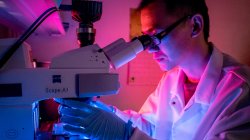Our department is made up of highly skilled faculty with national and international recognition as researchers in their fields. Information about their research areas can be found below, or the faculty’s individual websites. Our faculty conduct research on campus in many different facilities: the Microscopy and Microanalysis Research Laboratory, the Institute for Sustainability Studies, and the New Jersey Center for Water Science and Technology. Our reach extends beyond the campus in diverse locations both nearby and abroad in Ireland and St. Johns.
Faculty Research Interests
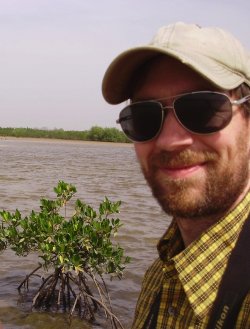
Associate Professor
- Phone
- 973-655-3584
- aardemam@montclair.edu
- Location
- Science Hall, 129
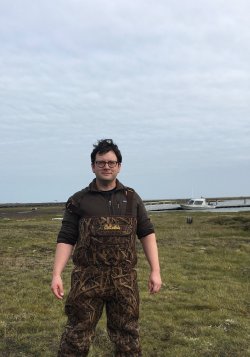
Assistant Professor
- bilykk@montclair.edu
- Location
- Science Hall, 134
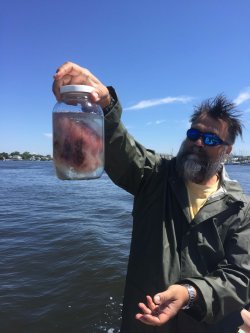
Professor
- Phone
- 973-655-4112
- bolognap@montclair.edu
- Location
- Science Hall, 112
Stinging Sea Nettles: Population Biology and Impacts on food webs in New Jersey
Invasive Jellyfish in New Jersey
Review of current projects and research interests can be found here.
https://www.researchgate.net/profile/Paul_Bologna
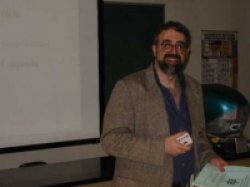
Professor
- Phone
- 973-655-4097
- campanellj@montclair.edu
- Location
- Science Hall, 119
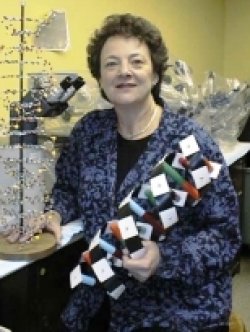
Professor
- Phone
- 973-655-4396
- dilorenzoa@montclair.edu
- Location
- Science Hall, 109
Previous work focusing mainly on heavy metals is now being directed to the specific contaminants in the dust from the World Trade Center tragedy (WTC) which has been analyzed by the Rutgers team of Dr. Paul Lioy. I was able to justify a request to Dr. Lioy of the Environmental and Occupational Institute of Rutgers University, and he generously sent us this WTC dust sample in late 2007. I plan to continue to expand our research to include more molecular and cytogenetic techniques. Studies of chromosomal damage are being measured by the Micronucleus test which shows small broken pieces of chromosomes as small darkly staining outside of the normal nucleus. Apoptosis Assays are employed to study DNA damage from heavy metals and WTC dust . Embryonic bone of chickens is also exposed to the WTC dust to study development in presence of these toxins.
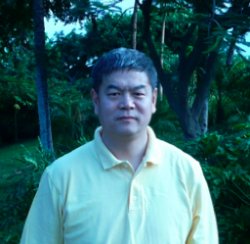
Professor
- Phone
- 973-655-4405
- duc@montclair.edu
- Location
- Science Hall, 124
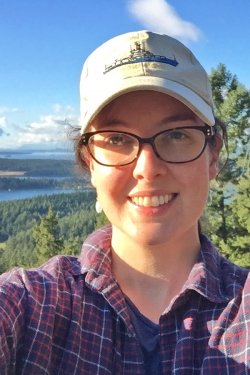
Associate Professor
- Phone
- 973-655-4248
- feehanc@montclair.edu
- Location
- Science Hall, 132
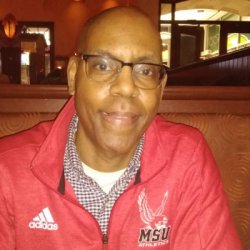
Professor
- Phone
- 973-655-7982
- halabyr@montclair.edu
- Location
- Science Hall, 120
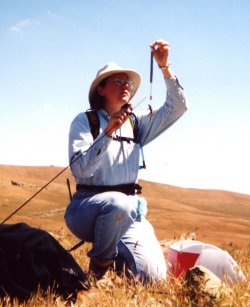
Associate Professor
- Phone
- 973-655-3418
- hazardl@montclair.edu
- Location
- Science Hall, 121
Reptile and amphibian physiology, ecology, and natural history (emphasis on northeastern and southwestern U.S. fauna)
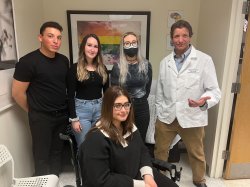
Professor
- keenanj@montclair.edu
- Location
- Science Hall, 317
Self-awareness and theory of mind
Deception and deception detection
Evolutionary cognitive neuroscience
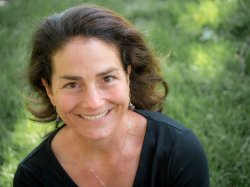
Professor
- kruminsj@montclair.edu
- Location
- Science Hall, 118
Biodiversity
Food web ecology
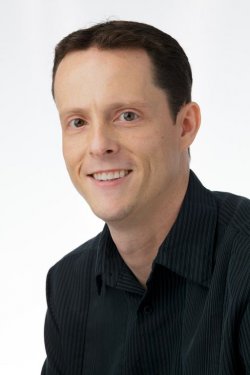
Professor
- Phone
- 973-655-7800
- meredithr@montclair.edu
- Location
- Science Hall, 133
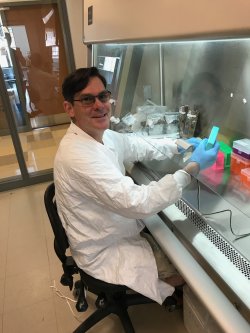
Professor
- Phone
- 973-655-3302
- molinac@montclair.edu
- Location
- Center for Environmental & Life Sciences, 400
Biology of Reproduction
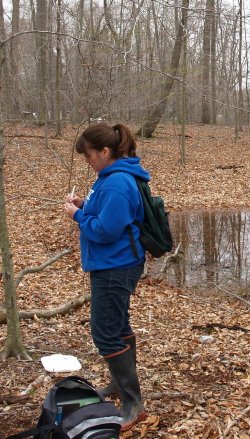
Associate Professor
- Phone
- 973-655-7788
- monsenk@montclair.edu
- Location
- Science Hall, 135
Molecular Ecology
Wildlife Disease
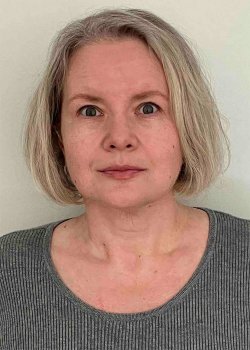
Chairperson
- Phone
- 973-655-2027
- petroffe@montclair.edu
- Location
- Science Hall, 110
Ion Channel Physiology
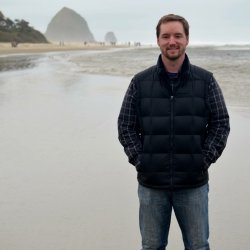
Assistant Professor
- Phone
- 973-655-7191
- schulerm@montclair.edu
- Location
- Science Hall, 113
Freshwater biology
Limnology
Physiological ecology
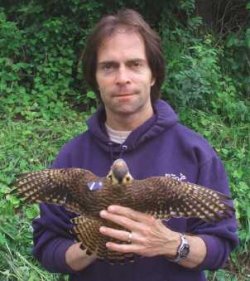
Associate Professor
- Phone
- 973-655-5345
- smallwoodj@montclair.edu
- Location
- Science Hall, 117
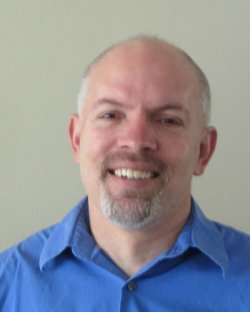
Professor
- Phone
- 973-655-7178
- vegaq@montclair.edu
- Location
- Science Hall, 122
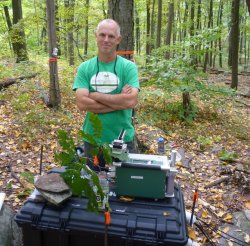
Professor
- Phone
- 973-655-5265
- vanderkleid@montclair.edu
- Location
- Science Hall, 123
I mostly teach BIOL113 (Principles of Biology 2), BIOL213 (Introduction to Ecology), and BIOL425/520 (Plant physiology). In addition, the last several years I have been teaching CSAM101 (Science Matters). In my teaching I try to engage students in their learning. My goal is to have students become fully engaged in their learning so that they go beyond rote learning and instead try to achieve deep learning (i.e. true understanding). I try to achieve this through a combination of in-class exercises, group projects out of class, hands-on learning in lab, and student reflection pieces in class. I believe that making lectures entertaining and showing students how the information is relevant to their lives helps them become and stay engaged. My exams are not multiple-choice. My exams are essay style and I ask students to demonstrate that they can apply what has been covered in class to a novel situation.
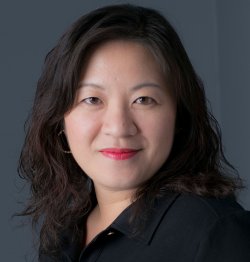
Professor
- Phone
- 973-655-7117
- wum@montclair.edu
- Location
- Center for Environmental & Life Sciences, 300
Her research emphasizes on sustaining biodiversity via rebuilding habitat connectivity and controlling invasive species. Due to high human population density and dense urban development, wildlife habitats are fragmented and/or destroyed. Extensive road network has been shown to create complete barriers to wildlife movement and cause mortality of wildlife. Dr. Wu’s research identifies and prioritizes wildlife crossing/mortality hotspots for mitigation planning to restore habitat connectivity and for the long-term persistence of wildlife species.
Exotic species invasion is a global environmental problem associated with increasing human activity, which causes significant global ecological and economic consequences. Dr. Wu’s research examines the impacts of exotic species introduction at population, community and ecosystem levels, efficacies of invasive management strategies, as well as development of new technologies to control invasive populations. Currently, Dr. Wu is working on development of ultrasonic treatment devices for invasive species management and disinfection.
Globally, wetlands are disappearing at an alarming rate. Dr. Wu’s research interests extend to wetland ecology, management, restoration, and impacts of global climate change on wetlands. Scientific evidence suggests that anthropogenic emissions of greenhouse gases are having a discernible effect on the global climate, including acceleration of global temperature and sea-level rise. Dr. Wu’s research studies the role of wetlands in global climate change. Do wetlands produce a surplus of greenhouse gases to the atmosphere or retain them? Are wetlands acting as carbon sinks or carbon sources? Should wetland construction be used in exchange for carbon credits? Moreover, with sea-level rise, there could be substantial loss of floodplain and coastal wetlands. Conversely, many terrestrial ecosystems today may be flooded and become wetlands in the future. Invasive species, insects and pathogens may increase their competitive ability, expand their distribution ranges and move poleward, outcompete native species and occupy the newly developed wetlands. Dr. Wu’s research investigates the impacts of global climate change on wetland distribution, biogeochemical cycles, structure and dynamics, and ecosystem functions and services.
For more information on her research, please visit https://sites.google.com/view/wulab/
The Department of Biology is housed in Science Hall, a facility that includes well-equipped research laboratories, teaching laboratories and prep rooms, a greenhouse, and faculty/staff offices. Research is funded by agencies including the National Science Foundation (NSF), the National Institutes of Health (NIH), U.S. Geological Survey (USGS), SeaGrant, and the New Jersey Department of Environmental Protection (NJDEP). It’s important to know the safety protocols when in the lab.
Student Research Opportunities
As a student in our department, you have many opportunities to pursue independent scientific research with faculty members. The first step is to find faculty members that are doing research exciting to you. Contact and visit those faculty members you find interesting – you might get a chance to conduct exciting and novel experiments with them!
Undergraduates can get academic credit for independent research by enrolling in Biology Independent Research (BIOL-418). Alternatively, utilize Externship in Biological Research (BIOL-409) for real-world career experience in addition to research credit. You can also participate in research through the Louis Stokes Alliance for Minority Participation (LSAMP) program.
Graduate students can take Introduction to Biological Research (BIOL-599) or Master’s Thesis (BIOL-698). Both involve independent research under the direction of a faculty member; the thesis involves a longer, more in-depth research experience. Graduate students in our programs are strongly encouraged to conduct thesis research.
Scholarships may be available to support students conducting research; see our scholarship page to see available scholarships. Student researchers have the opportunity to present their findings at local, regional, national and even international research conferences. They have also authored and co-authored papers published in peer-reviewed scientific journals.
